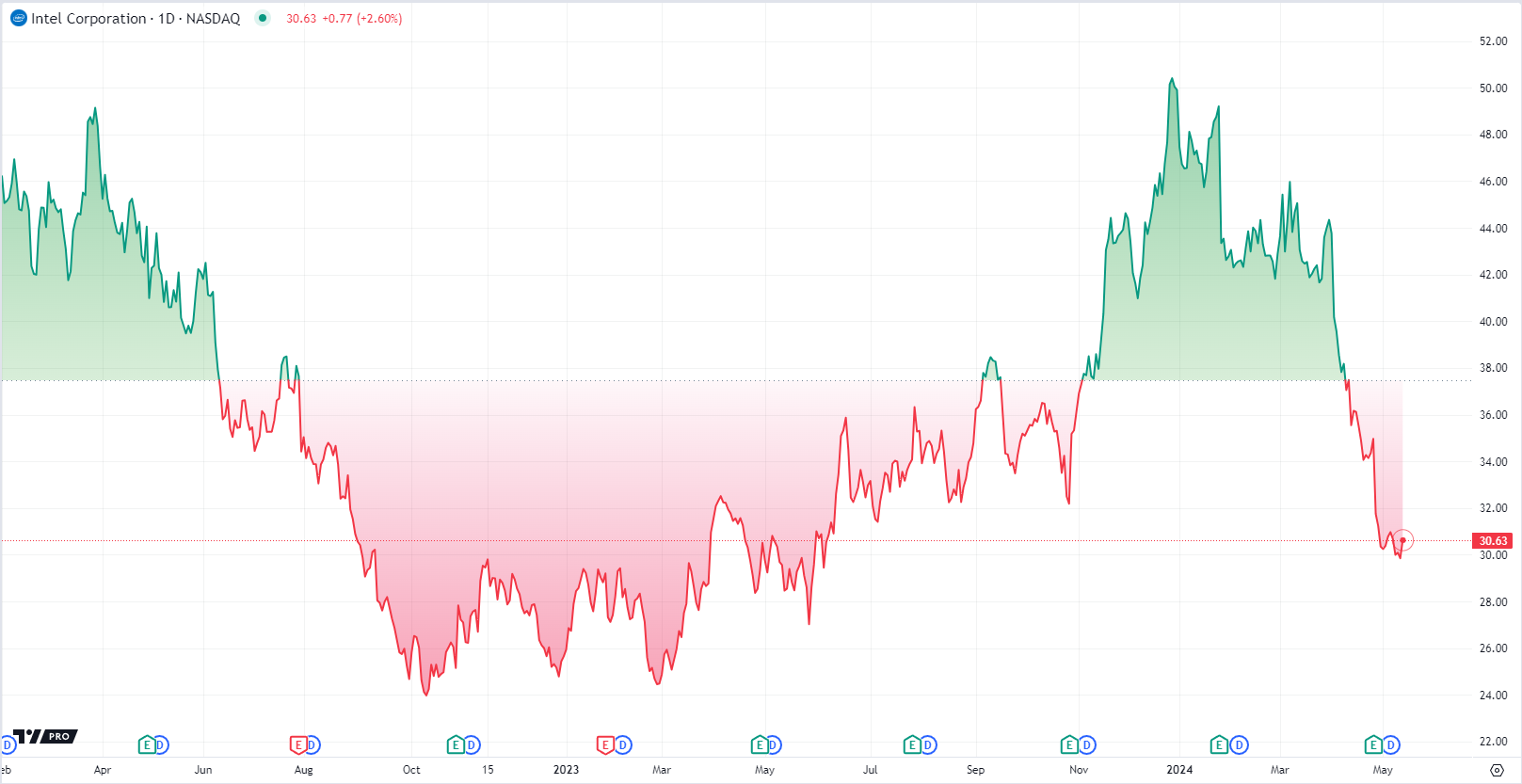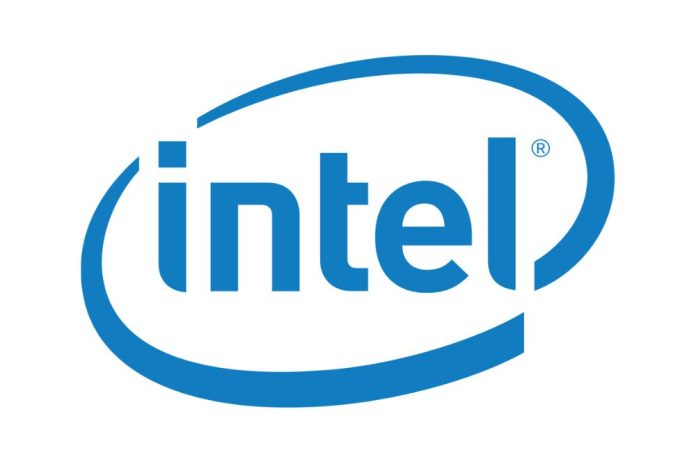Intel (NASDAQ:INTC), once a towering leader in the semiconductor industry, now finds itself in a challenging position. Recent quarters have been disappointing, with declining share prices signaling deep-rooted issues despite rising revenue. Investors and analysts are increasingly concerned about Intel’s future, as the company seems to have lost its previously unshakeable position. Over the past decade, Intel has been beset by severe internal problems that damage its market position and investment appeal. The revenue figures are misleading as growth is based on short-term gains and does not take into account strategic damage from missed opportunities and technological lag.
Intel made critical strategic errors, including delays in the transition to new technological processes, which allowed TSMC (TWSE:2330) to gain an advantage. Additionally, Intel’s refusal to cooperate with Apple (NASDAQ:AAPL) at the beginning of the smartphone era cost it significant income and prestige. Intel now faces a major dilemma: remain conservative and defend outdated positions or take risks by aggressively entering new markets.
The main reason for the drop in investor confidence is Intel’s loss of leadership in semiconductor innovation. A company that once dominated microprocessor production has seen TSMC take the lead with more advanced technological processes, becoming the preferred manufacturer for many leading technology companies.
Intel’s vision of itself as a semiconductor contractor raises questions about its ability to compete in the rapidly developing AI field, where companies like Nvidia (NASDAQ:NVDA) and Super Micro Computer (NASDAQ:SMCI) are leading the way. Artificial intelligence systems require advanced processors and innovative development approaches. Intel, it would seem, relies on manufacturing through innovation. To return to the forefront of innovation, as well as regain market dominance over Nvidia stock, Intel needs to invest heavily in research and development. The artificial intelligence segment represents a gold mine of modern technological innovations.
Intel might need to rethink its current strategy, focusing on developing cutting-edge technologies and partnering with leading market players. The company’s shift towards becoming a semiconductor contractor, confirmed by the reorganization of its business model and focus on servicing and manufacturing processors for third parties, may be profitable in the short term. However, this strategy limits Intel’s potential to provide unique AI solutions.
Numerous factors, including intense competition, slowing PC market growth, and problems with next-generation microprocessor releases, have led to Intel’s revenue decline for seven consecutive quarters. Apart from internal issues, macroeconomic factors also play a significant role in the company’s financial well-being. Inflation concerns, leading to the dollar index fluctuations, geopolitical tensions, impacting commodity prices, and central banks’ decisions all add complexity to the situation. An adventurous change in the business model could present new challenges if not supported by successful innovations and restored consumer confidence.
Attempts had already been made to catch up. When Steve Jobs introduced the first iPhone, it showcased a completely new product running on an OS similar to the one used in Macs. However, Intel missed the opportunity to become a key processor supplier for the iPhone due to corporate sluggishness and an inability to offer competitive prices and terms. Review the free bar replay chart to see how the stock price reacted to these events.

CEO Pat Gelsinger faces a tough task: to address current issues, he must implement significant changes in corporate culture, accelerate innovation processes, and enhance cooperation with key industry partners. It is crucial to restore Intel’s reputation as a leader in microprocessor production and return to its original mission of innovation and quality. Gelsinger must also improve investor relations by presenting a clear, transparent plan for sustainable growth and ensuring that Intel’s offerings set new industry standards.



